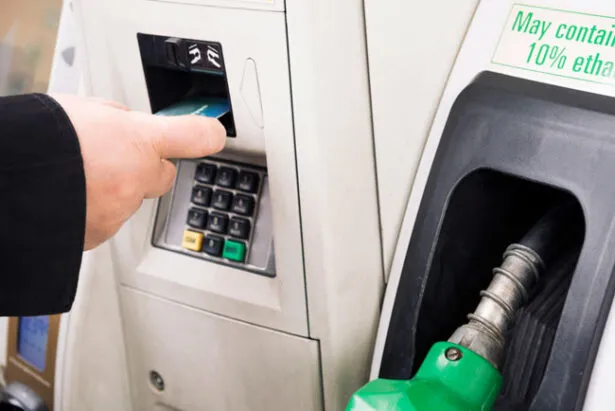
A fleet card or fleet fuel card is a business gas card used for purchasing fuel and other fleet-related products and services. Many fleet-dependent businesses use fleet cards like credit cards and only capitalize on their purchasing power and fuel rebates. However, when a fleet manager uses a fleet card as a management tool rather than simply a purchase method, many aspects of running a fleet can be improved.
Fleet cards have proven to be excellent tools for fleet management. Their ability to enhance efficiency, control and cost savings should not be overlooked.
Facets of Fleet Management
Fleet management encompasses the administration and coordination of a company’s transportation resources, including vehicles, drivers and related assets. Effective fleet management is crucial for businesses that rely on transportation, as it directly impacts operational efficiency, cost control and overall productivity.
Here are five major aspects of managing a fleet:
- Fuel management: Managing fuel expenses is a significant aspect of fleet management, as fuel costs can constitute a substantial portion of the overall budget.
- Route planning: Efficient route planning helps reduce fuel consumption, minimize travel time and enhance overall productivity.
- Vehicle maintenance: Regular maintenance is crucial to ensure vehicles remain in good working condition, minimizing downtime and preventing costly repairs.
- Driver management: Effective driver management involves monitoring driver performance, ensuring compliance with safety regulations and providing necessary training.
- Regulatory compliance: Ensuring compliance with legal and regulatory requirements is essential to avoid penalties and maintain a good reputation.
Fleet Cards and their Role in Fleet Management
In recent years, fleet cards have emerged as indispensable tools in fleet management. These specialized payment cards are used by businesses to manage expenses related to their fleets. However, these cards are also specifically designed to streamline various aspects of fleet management, offering numerous benefits that can enhance efficiency and control. Let’s explore the different ways fleet cards contribute to effective fleet management.
Fuel Rebates and Service Discounts
One of the most significant advantages of using fleet cards is the access to fuel rebates and service discounts. These incentives can lead to substantial cost savings for businesses, making fleet cards an attractive option for managing fuel expenses.
One of the most significant advantages of using fleet cards is the access to fuel rebates and service discounts.
Fuel Rebates
Fuel rebates are a significant draw for companies using fleet cards. Many fuel card providers offer rebate programs allowing businesses to earn a percentage of their fuel expenses back as a rebate. These rebates can vary based on fuel volume, location and the specific fuel card program. By utilizing these rebates, businesses can reduce their overall fuel costs, which is especially beneficial for fleets with high fuel consumption.
Discount Programs
In addition to fuel rebates, fleet cards often come with access to various discount programs. These programs may include discounts on vehicle maintenance services, tire purchases and other essential fleet-related expenses. By leveraging these discounts, businesses can further reduce operational costs, ensuring their fleet remains well-maintained and operational without breaking the bank.
Real-time Transaction Data

Another key benefit of fleet cards is the ability to access real-time transaction data. Fleet managers can monitor fuel purchases, maintenance expenses and other transactions as they occur. This real-time visibility enables better control and oversight of fleet operations, helping quickly identify discrepancies or unauthorized purchases.
The data points captured by fleet cards include:
- Date and time of transaction
- Fuel station location
- Amount of purchase
- Volume of purchase
- Fuel type (gas vs. diesel)
- Fuel grade (regular vs. premium)
This information is helpful in managing both drivers and fuel usage.
Automated Fuel Expense Tracking
Tracking fuel expenses manually can be time-consuming and error-prone. Real-time transaction data means all your fuel expense tracking is done automatically. Transactions made with a fleet card are recorded and categorized automatically, eliminating the need for manual data entry and reducing the risk of errors.
Automated fuel expense tracking also ensures all fuel-related expenses are accurately accounted for, making it easier to generate expense reports and manage budgets. This streamlined approach to fuel expense tracking saves time and resources, allowing fleet managers to focus on more strategic aspects of fleet management.
Purchase Limits for More Control
Fleet cards offer the ability to set purchase limits. This gives fleet managers greater control over spending. These limits can be customized based on various parameters, such as fuel type, transaction amount and time of day. By setting purchase limits, businesses can prevent unauthorized or excessive spending, ensuring fuel expenses remain within budget.
Purchase limits also help to promote responsible spending behavior among drivers. Aligning your purchase limits with your fuel spending policy is a great way to establish clear guidelines and restrictions. These parameters also encourage drivers to make cost-effective choices and avoid unnecessary expenses.
Reporting and Analytics
Effective fleet management relies heavily on data-driven decision-making. Fleet cards provide comprehensive reporting and analytics tools that offer valuable insights into fleet operations. These tools generate detailed reports on fuel consumption and overall spending patterns, enabling fleet managers to make informed decisions and identify opportunities for improvement.
Reporting and analytics also help identify trends and patterns that may not be immediately apparent. For example, fleet managers can use these tools to pinpoint fuel inefficiencies, which could be caused by driver behavior or vehicles needing maintenance. By leveraging these insights, businesses can implement strategies to help enhance fleet efficiency, reduce costs and improve overall performance.
The Key to Managing your Fleet
Fleet cards have proven to be excellent tools for fleet management. Their ability to enhance efficiency, control and cost savings should not be overlooked. By providing access to fuel rebates and service discounts, real-time transaction data, automated fuel expense tracking, purchase limits and robust reporting and analytics, fleet cards enable businesses to manage their fleets more effectively.